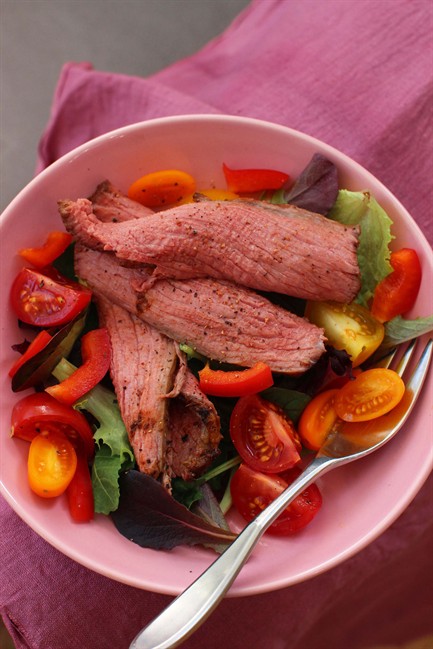In a new study that’s ignited a firestorm of controversy, Australian researchers are warning that the Paleo diet is “dangerous” and drives up weight.

Scientists out of the University of Melbourne say the Paleo diet, dubbed the caveman diet, isn’t a good idea for people who are trying to lose weight, especially if they’re already overweight or live sedentary lifestyles.
They’re issuing this warning after they placed overweight mice on the diet for a two-month stretch.
“We are told to eat zero carbs and lots of fat on the Paleo diet. Our model tried to mimic that, but we didn’t see any improvements in weight or symptoms. In fact, they got worse. The bottom line is it’s not good to eat too much fat,” lead research, Dr. Sof Andrikopoulos, said in a statement.
“This is a very important public health message here. You need to be very careful with fad diets, always seek professional advice for weight management and always aim for diets backed by evidence,” he said.
READ MORE: Follow this one tip if you’re trying to lose weight, study suggests
Andrikopoulos and his team fed two groups of mice a controlled diet — one group ate a normal diet while the other one had a diet with 60 per cent fat.
Within weeks, the scientists watched the mice on the high-fat, low carb diet balloon. Along with their weight and fat gains, their glucose intolerance worsened and their insulin levels rose, putting them at a higher risk of diabetes.
“To put that in perspective, for a 100 kilogram (220 pound) person, that’s the equivalent of 15 kilograms (33 pounds) in two months. That’s extreme weight gain,” Andrikopoulous said.
- Capital gains changes are ‘really fair,’ Freeland says, as doctors cry foul
- Ontario doctors offer solutions to help address shortage of family physicians
- ‘Dangerous message’: Experts slam anti-sunscreen claims circulating online
- ‘Trying not to die’: Tourism operators loaded with debt despite rising demand
The Paleo diet is about eating just like caveman did: whatever could be hunted for is fair game – meat, fish, nuts, leafy greens, seeds and vegetables.
READ MORE: Fast food vs. restaurant fare – which is worst for your waistline?
Starches like pastas and cereal, and processed fare, like cookies and candy, weren’t eaten by our ancestors so they’re off the table.
You don’t have to count calories or worry about portion sizes because you’re eating whole foods.
Its advocates say the diet increases energy and helps with keeping trim. So far, they’re pretty upset with the study’s allegations and are questioning its validity.
“To even suggest that a single mouse study can be extrapolated to show causality in humans is just bad science,” Dr. Loren Cordain, who authored The Paleo Diet, told U.S. outlets.
“The study totally lacks the criteria and objectivity by which most of the scientific, nutritional community uses to establish cause and effect between diet and exercise,” she said.
READ MORE: 9 diet and weight loss mistakes you’re making
(For their part, the scientists concede the study was done only in mice and that humans have a different metabolism.)
Christy Brissette, a Toronto-based registered dietitian and president of 80 Twenty Nutrition, says it’s also worth poking at the holes in the research.
For starters, the diet the mice were on isn’t quite the Paleo diet. To have 81 per cent of calories coming from fat is pretty steep, Brisette said.
“Calling this a Paleo diet study isn’t accurate,” she warned.
“The reason why supporters love it so much is because it can help us with weight loss. It tells us precisely what to eat and what not to eat, which can help, and it forces you to cut back on sugary drinks and other high-calorie foods,” she said.
Making those simple swaps is enough for most people to lose weight.
READ MORE: 6 misconceptions about nutrition and healthy eating
Its pitfalls lie in its rigidity too. She suggests that its supporters could be set up to fail over the long-term because the restrictions are so strict. There’s no dairy, pulses like beans and lentils, and grains, like bread, bagels and pasta, for example.
“To eat like the Flintstones when we’re living like the Jetsons just isn’t realistic,” she cautioned.
Read the Australian study’s full findings. They were published this month in the journal Nutrition and Diabetes.
carmen.chai@globalnews.ca
Follow @Carmen_Chai


Comments